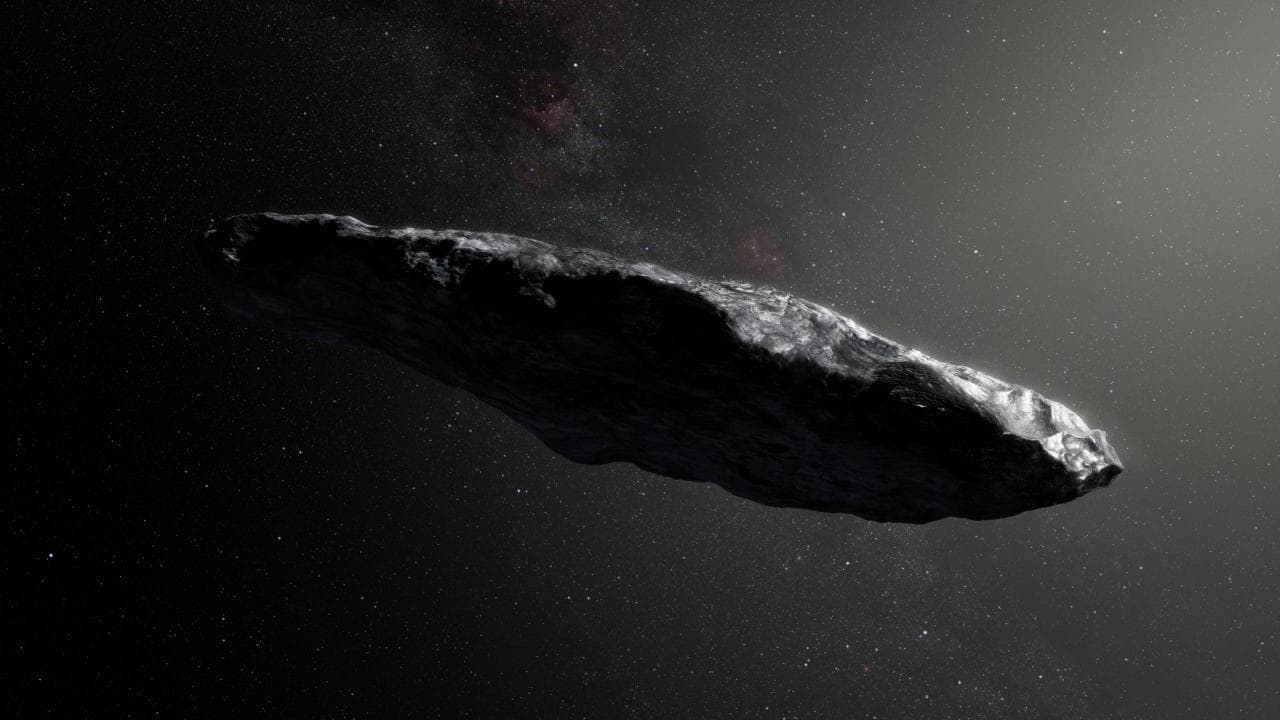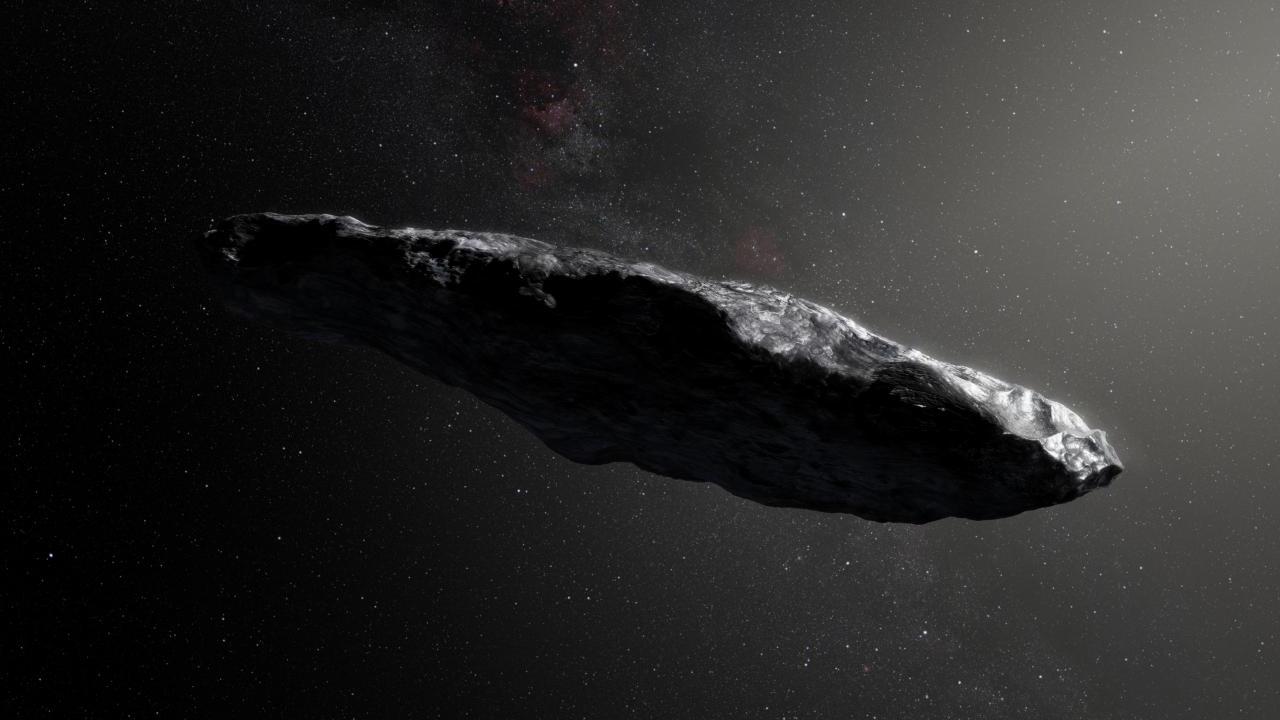The interstellar space-rock ‘Oumuamua that did a fly-by Earth earlier this year has left our solar system, but not the systems of scientists that were studying the rock. The peculiar object captured the interest of many astronomers, who came to different conclusions on whether the visitor was an asteroid or a comet. The space-rock was first spotted last year by astronomers at the Pan-STARRS observatory in Hawaii. Pan-STARRS is an astronomy laboratory specially designed to spot and study near-Earth Objects and fly-bys. ‘Oumuamua was a rocky, elongated asteroid according to **initial reports** from scientists studying it.
The cigar-shaped rock even drew the attention of researchers that recorded
radio signals from the asteroid in the event that it might be broadcasting information to/from extraterrestrials. As months went by and the space-rock made its near-Earth approach, the astronomy community armed itself with a range of instruments to get to the bottom of the unusual shape, velocity and trajectory. Unexpectedly, what followed only seemed to have led to more confusion. There was
some evidence that the rock largely resembled a comet — but a comet without a tail. Geologically, readings of the rock’s electromagnetic spectrum (emissions from the rock)
showed a layer of ice and organic material just beneath the surface. This is a characteristic feature of comets, and could have withstood a long journey of the rock through space,
another study suggested. The comet was being accelerated slightly, which was initially thought to be because of the Sun’s gravity, but later
found to be due to a phenomenon in comets called ‘outgassing’. [caption id=“attachment_4618301” align=“alignnone” width=“1280”] This artist’s impression shows the first interstellar asteroid, \Oumuamua as it passes through the solar system after its discovery in October 2017. Reuters[/caption] It was being accelerated by jets of gas released from within it as it passed by our Sun. A
new study now argues that the same forces that would have given ‘Oumuamua a tail (like a comet), and caused it to accelerate (due to outgassing) would have also caused it to spin. It would have spun apart and broken up into smaller rocks because of the way the comet moved and behaved — which the study says is very unlike a comet. “There’s very strong and unequivocal evidence on both sides,” Dr Roman Rafikov, author of the study,
said to Quanta. “If it’s an asteroid, then it’s really unusual, with exotic scenarios for its formation.” The rock is a messenger, but a messenger from a dead star, the study says. Rafikov theorises in a
previous study that when a star dies and forms what is known as a ‘white dwarf’, it rips planets apart and causes shards (like ‘Oumuamua) to be flung in different directions. The one fact brought to light by ‘Oumuamua according to many astronomers including Dr Michele Bannister from the Queen’s University, Belfast, is that space rocks need not be a binary — either comet or asteroid. “What I hope ‘Oumuamua brings home is that planetary systems grow and evolve.. they create trillions of little planetesimals throughout the galaxy, and some of those will come and visit us every once and a while,” Bannister
said to Quanta. “Our planetesimals are no doubt visiting other stars.”


)
)
)
)
)
)
)
)
)



